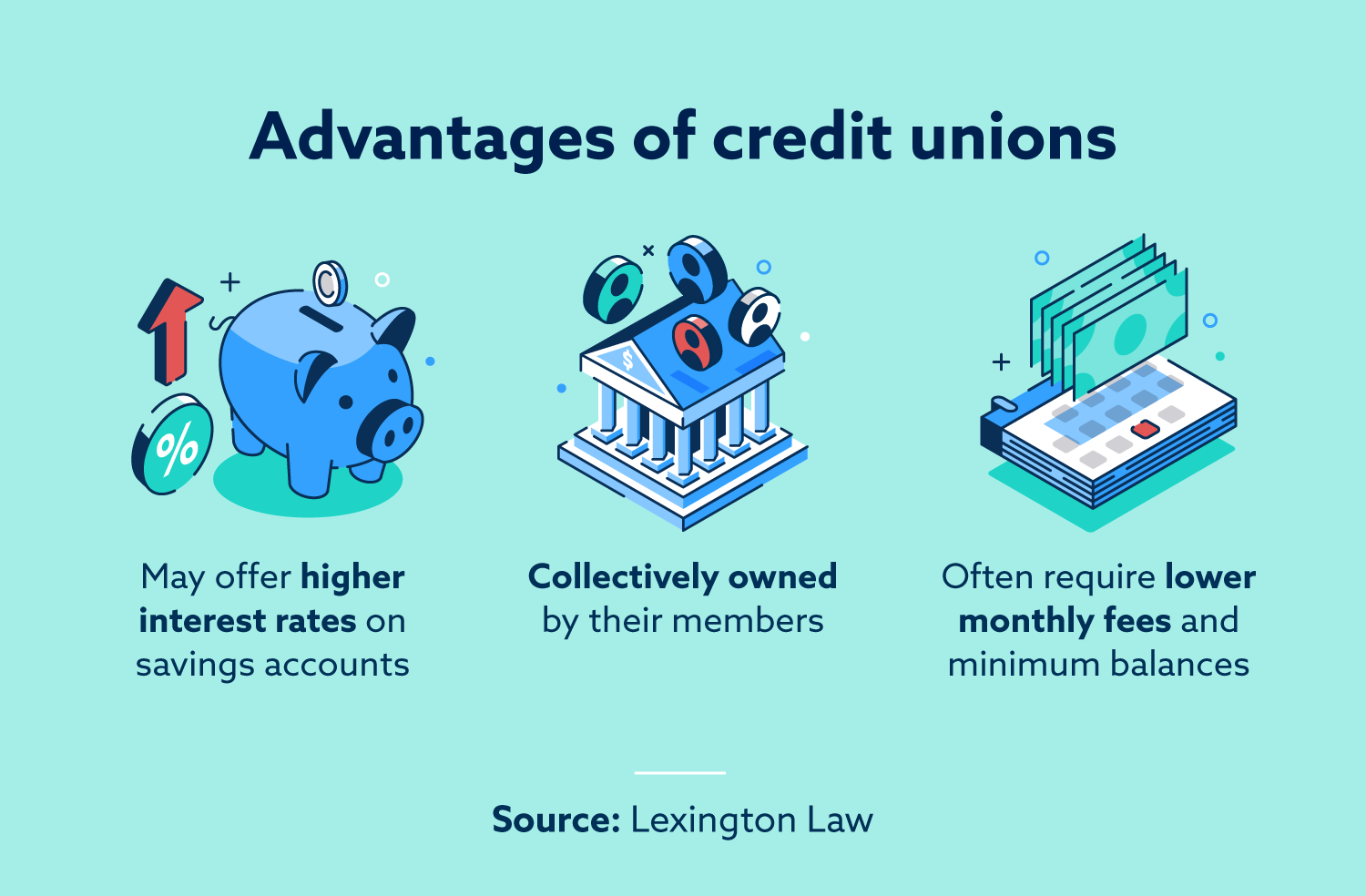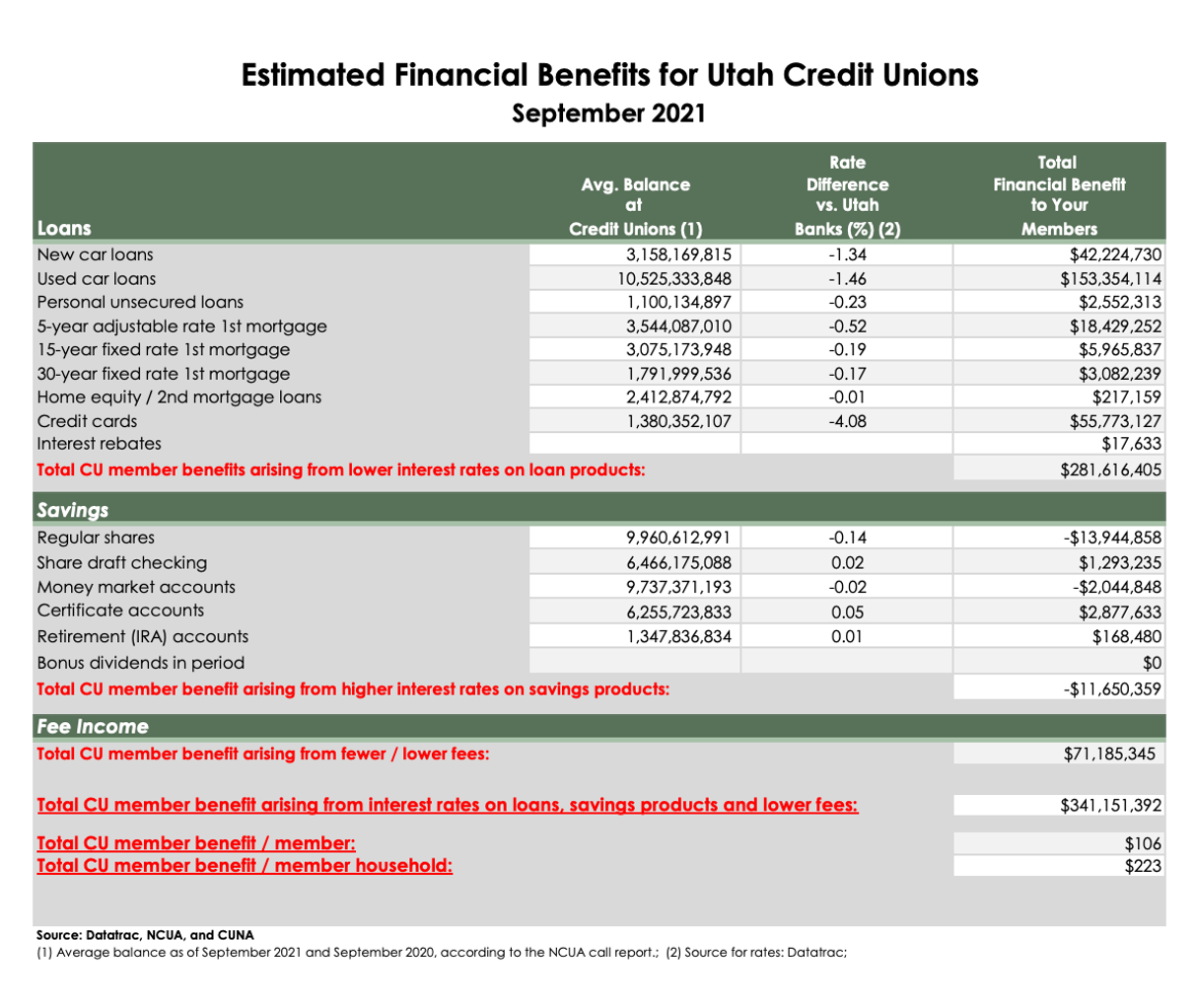The Ultimate Guide to Comprehending Credit Scores Unions

Credit unions stand as unique financial entities, rooted in principles of mutual assistance and member-driven procedures. As we browse through the ins and outs of credit score unions, an informative trip awaits to lose light on these member-focused institutions and just how they differ from typical financial institutions.
What Are Lending Institution?
Lending institution are member-owned monetary institutions that offer a series of financial solutions to their participants. Unlike conventional financial institutions, cooperative credit union run as not-for-profit companies, meaning their primary focus is on serving their members instead of optimizing revenues. Members of a credit scores union normally share an usual bond, such as benefiting the same company, coming from the same area, or belonging to the same organization.
Among the vital advantages of credit unions is that they often offer greater rate of interest on cost savings accounts and reduced rates of interest on lendings contrasted to financial institutions. Wyoming Credit Union. This is due to the fact that credit scores unions are structured to benefit their participants directly, allowing them to pass on their earnings in the form of much better rates and fewer costs. Additionally, lending institution are understood for their individualized customer care, as they prioritize developing partnerships with their members to comprehend their unique economic requirements and goals
Background and Evolution of Cooperative Credit Union
The origins of member-owned financial cooperatives, recognized today as credit report unions, trace back to a time when areas sought options to standard financial establishments. The concept of lending institution originated in the 19th century in Europe, with Friedrich Wilhelm Raiffeisen often credited as the leader of the cooperative financial motion. Raiffeisen founded the initial recognized lending institution in Germany in the mid-1800s, emphasizing community support and self-help principles.
The advancement of cooperative credit union continued in North America, where Alphonse Desjardins developed the first debt union in copyright in 1900. Shortly after, in 1909, the very first U.S. lending institution was formed in New Hampshire by a team of Franco-American immigrants. These very early credit report unions operated the fundamental concepts of shared assistance, democratic control, and participant ownership.
In time, credit history unions have expanded in popularity worldwide due to their not-for-profit framework, concentrate on offering participants, and providing competitive economic items and services. Today, credit report unions play an important role in the monetary market, offering community-oriented and obtainable banking alternatives for individuals and businesses alike.

Subscription and Qualification Requirements
Subscription at a credit union is typically restricted to people satisfying details eligibility criteria based upon the organization's starting concepts and regulative demands. These standards usually include aspects such as geographical place, work status, membership in particular companies, or affiliation with particular teams. Lending institution are known for their community-oriented technique, which is shown in their subscription requirements. Federal Credit Union. Some credit unions may just offer people that function or live in a particular location, while others might be customized to employees of a certain business or members of a specific organization.
Furthermore, cooperative credit union are structured as not-for-profit companies, indicating that their main goal is to serve their members as opposed to create earnings for shareholders. This concentrate on participant solution typically converts right into even more customized attention, reduced fees, and affordable passion prices on finances and cost savings accounts. By meeting the qualification criteria and coming to be a member of a Full Article lending institution, individuals my response can access a variety of monetary product or services customized to their specific demands.
Solutions and Products Used
One of the crucial facets that establishes credit unions apart is the diverse series of economic services and products they provide to their participants. Cooperative credit union normally offer traditional banking services such as cost savings and inspecting accounts, lendings, and credit scores cards. Members can likewise take advantage of investment services, consisting of pension and monetary preparation assistance. Lots of credit report unions use affordable rate of interest on interest-bearing accounts and car loans, in addition to reduced fees contrasted to typical banks.
Furthermore, credit visit report unions typically offer convenient online and mobile financial choices for members to easily handle their financial resources. They may offer advantages such as common branching, enabling participants to access their accounts at other cooperative credit union across the country. Some credit history unions additionally provide insurance policy items like life, home, and automobile insurance coverage to help members secure their assets and liked ones.
:max_bytes(150000):strip_icc()/GettyImages-184268471-5bcba6ad46e0fb0051ae6958.jpg)
Benefits of Banking With Lending Institution
When thinking about monetary organizations, exploring the advantages of banking with credit rating unions reveals unique advantages for members seeking personalized solution and competitive prices. Unlike huge banks, credit report unions are member-owned and focus on structure solid connections with their participants. In general, financial with a credit score union can give a more customized, cost-effective, and member-centric monetary experience.
Verdict
In conclusion, credit unions stand out as member-owned financial establishments that prioritize serving their members over optimizing profits. With origins dating back to 19th century Europe, credit scores unions comply with concepts of common help and member ownership.
Credit report unions are member-owned monetary organizations that provide a range of financial solutions to their participants. The principle of credit history unions stem in the 19th century in Europe, with Friedrich Wilhelm Raiffeisen typically attributed as the leader of the cooperative financial movement.The evolution of debt unions continued in North America, where Alphonse Desjardins established the first credit rating union in copyright in 1900. Debt unions commonly give typical banking services such as financial savings and inspecting accounts, lendings, and credit report cards.When thinking about economic establishments, checking out the advantages of banking with credit unions discloses one-of-a-kind advantages for participants looking for individualized service and competitive rates.